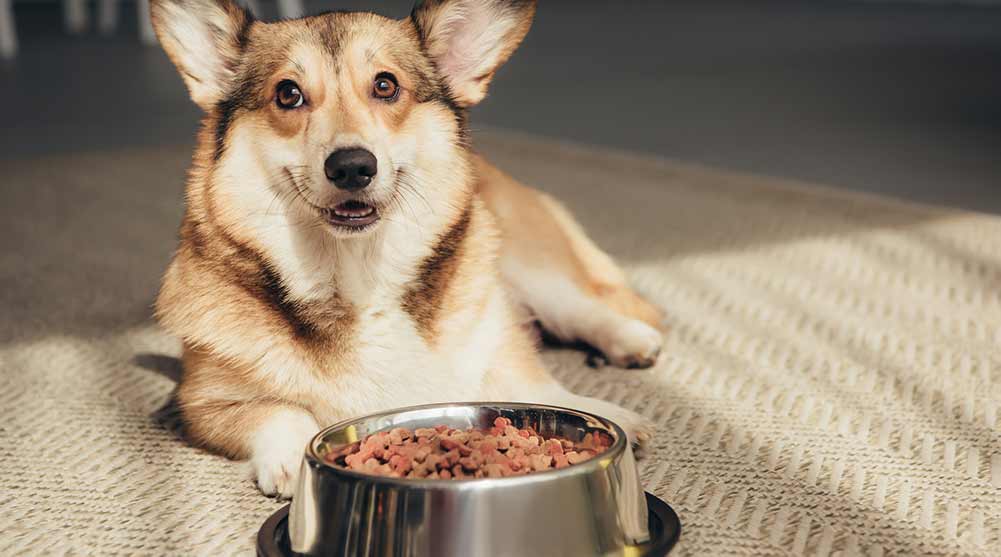
Diminished hunger (hyporexia) or absence of hunger (anorexia) in canines can elicit distress among pet guardians and may frequently imply an undisclosed medical ailment. Disregarding anorexia persisting beyond 24 hours is ill-advised, as it typically serves as a cautionary signal for an underlying condition.
Provided herein is a unique perspective on the causes behind your dog's decreased food intake, comprising an interrogatory tool aimed at unraveling the core problem, along with practical suggestions to aid you in addressing the situation.
Reason Behind Why Dog Is Not Eating
The refusal of food by dogs can stem from various causes, encompassing three primary classifications:
- Physiological
- Behavioral
- Food-related challenges
Medical
A Broad Spectrum of Potential Medical Triggers for Canine Anorexia or Hyporexia The array of potential medical factors contributing to a dog's anorexia or hyporexia is extensive, encompassing any condition capable of inducing discomfort, nausea, lethargy, or anxiety. The scope of potential causes is wide-ranging and should be thoroughly considered.
- Oral Pain
- Vomiting
- Fever
- Nausea
- Infection
- Dental disease
- Pancreatitis
- Cancer
- Kidney disease
- Lung disease
- Liver disease
- Intestinal parasites
- Diarrhea
- Inflammatory bowel disease
- Stomach upset
- Congestive heart failure
Behavioral
Diminished hunger in dogs can stem from behavioral aspects, wherein anxiety, stress, or fear plays a significant role, much like in humans. It is crucial to acknowledge that what may be perceived as stressful to you might differ from what your dog perceives as stressful, and even seemingly minor triggers can induce anxiety, leading to a reluctance to eat.
Alterations in a dog's routine or environment, such as introducing new individuals or pets into the household, travel, or exposure to loud noises like construction, storms, or fireworks, can evoke unease. Even a seemingly insignificant change, like adjusting the timing or location of a meal, can induce stress in more sensitive dogs, thereby reducing their inclination to eat.
Intimidation from other pets within the household can also deter a dog from approaching its food bowl. Many dogs prefer to avoid consuming their meals close to their housemates due to potential intimidation factors that humans may not readily recognize. Separating dogs during feeding times is advisable to mitigate resource guarding and minimize intimidation.
Typically, if the underlying cause is related to stress or anxiety, dogs tend to resume eating within a day or two once they have acclimated to the change. However, in frequent or persistent stress and anxiety cases, some dogs may require behavioral modification techniques or medical interventions to alleviate their symptoms and promote a healthier appetite.
Issue With Food
The source of the issue could lie within the food itself, encompassing possibilities such as age, expiration, staleness, or spoilage. While certain dogs, like carefree Labrador Retrievers, may devour anything in sight, others, such as Yorkshire Terriers, may exhibit more discerning tastes.
Suppose a dog has been consistently consuming the same food without any issues. In that case, examining the expiration date on the packaging and ensuring proper storage in an airtight container is advisable. Containers and bags containing dog food should always be sealed, and if the expiration date has passed, the food should be discarded. Open cans of food can be resealed with plastic wrap or specially designed lids and refrigerated for two to three days.
Pet owners often wonder if their dog refuses to eat particular food due to boredom. While some dogs may display picky eating habits, a healthy and hungry dog should not abruptly cease consuming a particular food solely because it has been a part of their diet for some time.
It may take a few attempts to identify the dog food that best suits your dog's preferences. However, if your dog consistently loses interest in various food options, it could result from excessive treats, human food consumption, or an underlying medical condition.
Dogs are intelligent creatures and swiftly learn that delaying their kibble consumption may lead to receiving more enticing treats instead. Instead of immediately resorting to table scraps or switching to a new food, consider incorporating canned food into the kibble or gently warming the canned food to entice the dog's appetite.
Abruptly transitioning to a new food often results in stomach disturbances such as decreased appetite, vomiting, or diarrhea, making it counterproductive. It is highly unusual for a dog to voluntarily go without eating for multiple days solely due to pickiness, so it is crucial to consult a veterinarian and rule out any underlying medical conditions if such a situation arises.






